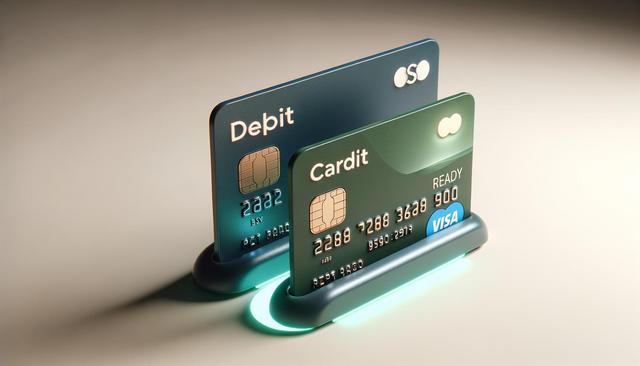What Are Prepaid Debit and Credit Cards?
Prepaid debit and credit cards are financial tools that allow users to spend money that has been preloaded onto the card. Unlike traditional credit cards, they do not require a credit check or a linked bank account, making them a practical option for individuals who are unbanked or have limited access to financial institutions. These cards can be used in the same way as regular debit or credit cards for purchases in stores, online, or over the phone, and they are accepted at most merchants that take card payments.
One of the most appealing features of prepaid cards is that they help users manage their spending. Since you can only spend what is loaded onto the card, there’s no risk of overdraft fees or accumulating debt. This functionality makes prepaid cards especially popular among younger users, travelers, and those looking to stick to a strict budget.
Some common types of prepaid cards include:
- General-purpose reloadable cards
- Gift cards for specific retailers
- Travel cards designed for use abroad
- Payroll cards provided by employers
Each type of card serves a different purpose, allowing users to choose one that fits their specific needs.
How to Use a Prepaid Card
Using a prepaid debit or credit card is relatively straightforward. After purchasing or receiving the card, the user must activate it—usually through a website or phone call. Once activated, funds can be loaded onto the card through various methods, such as:
- Direct deposit from an employer
- Bank transfer
- Cash reload at participating retailers
- Mobile app transfers
After loading funds, the card can be used for everyday purchases, bill payments, or online shopping. Some prepaid cards also allow ATM withdrawals, though it’s important to check for any associated fees. Users can typically monitor their balance and transaction history through a mobile app or web portal, which helps in tracking expenses and avoiding overspending.
For security, many prepaid cards come with PIN protection and fraud monitoring. If the card is lost or stolen, it can often be replaced, provided it was registered by the user. This adds an extra layer of security compared to carrying cash.
Benefits of Using Ready-to-Use Prepaid Cards
Prepaid debit and credit cards that are ready to use offer several advantages, especially in terms of convenience and accessibility. These cards are often available at retail locations, allowing for instant purchase and use without lengthy application processes. Once activated and loaded, they are ready for immediate spending, which is ideal for time-sensitive needs.
Additional benefits include:
- No need for a credit check
- Control over spending limits
- Acceptance at most merchants
- Reduced risk of debt accumulation
Prepaid cards are also a useful financial management tool for parents who want to give their children limited access to funds. By setting a spending cap, parents can teach budgeting skills in a controlled environment. Similarly, travelers often use reloadable cards to avoid carrying large amounts of cash and to manage foreign exchange rates more efficiently.
These cards can also be a stepping stone for individuals looking to build a financial history. While they don’t typically affect credit scores, using them responsibly can help build good financial habits that are beneficial when transitioning to traditional credit options.
Limitations and Considerations
Despite their benefits, prepaid debit and credit cards do come with some limitations. For example, they may have monthly maintenance fees, ATM withdrawal charges, or fees for certain types of transactions. It’s important for users to read the terms and conditions carefully to avoid unexpected costs.
Other potential drawbacks include:
- Limited acceptance in some cases (e.g., car rentals, hotel bookings)
- No credit-building benefits unless linked to a reporting service
- Reloading options that may include fees
Some cards may also have expiration dates or inactivity fees, so users should stay informed about the card’s status and usage requirements. Additionally, while these cards offer fraud protection, the process for disputing unauthorized transactions may not be as robust as traditional bank-issued cards.
Another consideration is that not all prepaid cards are FDIC-insured, especially if the provider is not a traditional financial institution. Users should verify the safety of their funds before committing to a specific card provider.
Choosing the Right Prepaid Card for Your Needs
Selecting the right prepaid debit or credit card depends on your specific financial goals and usage habits. For instance, those who plan to use the card frequently for everyday purchases may prefer one with low transaction fees and robust mobile app support. On the other hand, occasional users might be more interested in cards with no monthly maintenance charges.
When choosing a prepaid card, consider the following features:
- Reloading methods and associated costs
- Usability for online and international transactions
- Availability of customer support
- Security features like fraud alerts and PIN protection
It’s also helpful to read customer reviews and compare multiple options before making a decision. Some cards offer rewards programs or cashback incentives, while others focus purely on functionality and cost-effectiveness. Remember to verify if the card is protected under FDIC or similar insurance schemes for added peace of mind.
Ultimately, choosing a well-regarded prepaid card can simplify money management, offer flexible spending, and provide a secure alternative to carrying cash or using traditional banking services.
Conclusion: A Practical Financial Solution for Many
Prepaid debit and credit cards that are ready to use can be a valuable financial resource for a wide range of users. Whether you’re budgeting, traveling, managing allowances, or looking for an alternative to conventional banking, these cards provide flexible, accessible options. By understanding the features, benefits, and limitations, users can make informed decisions that fit their financial needs and lifestyle. With responsible use and awareness of any associated fees, prepaid cards can support better money management and offer peace of mind in everyday spending.












